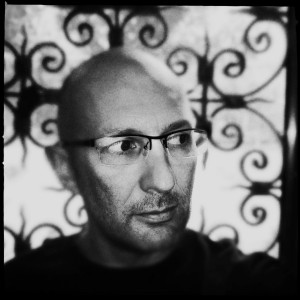72886必赢欢迎光临72886必赢欢迎光临学术系列讲座公告(五)
Lectures on Educational Technology
教育技术系列讲座
Hosted by the School of English for Specific Purposes,
Info USA@BFSU
主办:72886必赢欢迎光临72886必赢欢迎光临、72886必赢欢迎光临美国信息中心
Speaker: Dr. D. Christopher Brooks
Time: 14:00-17:00, April 9 (Saturday), 2016(4月9日下午2-5点)
Venue: Seminar Hall, 3rdFloor, BFSU Library (北外图书馆三层讲座厅)
Language: English(讲座语言为英语)
Lecture 1:
But Does It Work? Evaluating and Assessing of Educational Technology Projects
现代教育技术的效果评估
Abstract:
Far too often, faculty who develop creative and innovative approaches to teaching with technology fail to document the effectiveness of their approach on teaching practices and learning outcomes. While they may be research specialists in their own respective fields, they may not understand the social scientific approaches and methods to evaluating and assessing educational technology projects that are available to them. In this presentation, the speaker will review some of the basic methodological issues that are related to participating in the scholarship of teaching and learning and cover some basic research designs that can produce evidence beyond the anecdotal.
教师在利用现代教育技术手段对教学进行改革创新时通常不会考虑技术对教学过程和学生学习效果所发挥的作用。教师虽然是其专业领域的专家,但有可能并不了解评估教育技术的方式与方法。在这个讲座中,主讲人将回顾相关领域的基本研究方法,讨论若干研究设计,从而提高现代教育技术效果评估的科学性与客观性。
Lecture 2:
Cutting Through the Hype: Researching MOOCs
冷眼看慕课
Abstract:
When MOOCs arrived on the higher education scene in 2012, educational technology enthusiasts, entrepreneurs, and trend-setters were hopeful that the massive online open courses would revolutionize higher education as we know it. Although the hype surrounding MOOCs has largely waned in the United States, they continue attract attention among European and Asian institutions seeking to democratize education by giving access to courses that would otherwise be financially, academically, or geographically unavailable to those who take them. Regardless, the impact of MOOCs on teaching and learning remains largely unknown as the pace at which these courses are offered often outpaces our ability to research them. In this presentation, the speaker will offer an overview of the methodological issues related to researching MOOCs, offer some results of early research conducted at the University of Minnesota, and introduce some exciting research that promises to help us better understand MOOCs.
自2012年慕课应用于高等教育领域以来,众多教育者和企业家对这一新兴事物产生了极大兴趣,认为慕课有可能给高等教育带来革命性的变革。虽然慕课热在美国已经降温,但欧洲和亚洲高等院校对慕课的热情仍有增无减,人们认为慕课可以实现教育的民主化,为更广泛的人群提供教育资源。然而,慕课对教与学究竟能发挥什么作用在很大程度上仍然是一个未知数,原因是慕课发展速度太快,而相关研究则并未跟进。在这个讲座中,主讲人将对慕课研究的研究方法做一梳理,介绍明尼苏达大学早期慕课研究取得的一些成果,并讨论一些有可能让我们更好了解慕课的其他研究。
Speaker’s Bio

Christopher Brooksserves as a Senior Research Fellow for the EDUCAUSE Center for Analysis and Research, or ECAR, (http://www.educause.edu/ecar) where he conducts research on a range of topics related to IT in higher education including analytics, service delivery, integrated planning and advising services, (IPAS), and how undergraduate students and faculty use, think about, and relate to IT. Prior to joining ECAR in December 2013, Dr. Brooks served as a Research Associate in the Office of Information Technology at the University of Minnesota where he researched the impact of educational technologies and Active Learning Classrooms (ALCs) on teaching practices and learning outcomes, completion rates and the impact of MOOCs on student learning, and evaluating blended learning environments. His research appears in a range of scholarly journals including theBritish Journal of Educational Technology,EDUCAUSE Quarterly, theInternational Journal for the Scholarship of Teaching and Learning,The Journal of College Science Teaching,Evolution, theJournal of Political Science Education, andSocial Science Quarterly, and in the edited volumeBlended Learning: Research Perspectives, Vol. 2. His co-edited volume ofNew Directions for Teaching and Learning on Active Learning Spaceswas published 2014. His co-authored book,A Guide to Teaching in the Active Learning Classroom: History, Research, and Practice, will be published in May 2016. Christopher earned his Ph.D. in Political Science from Indiana University in 2002. He has taught courses in comparative politics and political theory at Indiana Purdue Fort Wayne (IPFW), St. Olaf College, and the University of Minnesota.